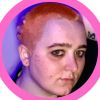8 Best-Selling Psychoanalysis Books Millions Love
Love More., a musician and cultural commentator, and Vanessa Carlton, singer-songwriter, recommend these best-selling Psychoanalysis Books for deep insight and lasting impact.


There's something special about books that both critics and crowds love, especially in a field as rich and complex as psychoanalysis. These 8 best-selling books have stood the test of time, offering readers proven insights into the unconscious mind, personality, and human relationships. Whether you're drawn by Freud's foundational theories or the nuanced perspectives of contemporary clinicians, these works have shaped how we understand ourselves and others. Psychoanalysis remains vital today as it unpacks the hidden forces behind behavior, making these books continually relevant.
Experts like Love More., a musician and cultural commentator known for thoughtful takes on emotional connection, have highlighted The Art of Loving for its enduring exploration of love as a psychoanalytic skill rather than mere feeling. Meanwhile, singer-songwriter Vanessa Carlton recommends the same book for its fascinating, if occasionally dated, concepts—showing how even artists find psychoanalytic ideas compelling and applicable. Their endorsements reflect how these texts resonate beyond academia, influencing diverse readers.
While these popular books provide proven frameworks, readers seeking content tailored to their specific Psychoanalysis needs might consider creating a personalized Psychoanalysis book that combines these validated approaches. This way, you can focus on the psychoanalytic themes and applications most relevant to your life or practice, all in one place.
Recommended by Love More.
Musician and cultural commentator
“Commented this on the original TikTok too, but… highly recommend this book btw. All About Love by Bell Hooks is considered its spiritual successor, so I'll read that next.” (from X)
by Erich Fromm··You?
by Erich Fromm··You?
Erich Fromm challenges the common assumption that love is merely a spontaneous feeling, instead presenting it as a skill that must be cultivated with intention and self-awareness. Drawing on his background as a psychoanalyst and social psychologist, Fromm explores different dimensions of love—from care and responsibility to respect and knowledge—inviting you to rethink how you engage in relationships. You’ll learn how love intersects with personal growth and societal structures, with chapters that dissect romantic love, brotherly love, and self-love. This book suits anyone seeking a deeper understanding of emotional connections, whether you're navigating personal relationships or examining love's role in broader social contexts.
by Sigmund Freud··You?
by Sigmund Freud··You?
What started as Sigmund Freud's clinical work investigating neurotic patients evolved into a foundational text that explores the unconscious mind's hidden influences on behavior. Freud carefully unpacks complex concepts such as childhood sexuality, dream interpretation, and neurosis, presenting them through an engaging dialogue with a fictional critic. You’ll gain insight into how these early 20th-century ideas challenged prevailing notions about human motivation, revealing the unseen forces that shape thoughts and actions. This book suits anyone interested in psychology's roots or the origins of psychoanalysis, though its dated perspectives mean it's best paired with more contemporary studies for a balanced view.
by TailoredRead AI·
This tailored psychoanalysis book explores fundamental and advanced psychoanalytic concepts, focusing on methods proven effective through widespread reader validation. It covers classical theories and contemporary clinical applications, offering a unique blend of collective knowledge and personal relevance. You receive a deeply engaging, personalized exploration that matches your background and clinical challenges, helping you navigate psychoanalytic practice with greater clarity and confidence. The book reveals how core psychoanalytic ideas relate to your specific interests, allowing you to grasp complex themes in a way that aligns closely with your goals and experiences. This tailored approach enriches your understanding and practical insight into psychoanalysis.
by Nancy McWilliams··You?
Nancy McWilliams, with decades of clinical and academic experience, crafted this book to bridge psychoanalytic theory and practical diagnosis. You gain clear insights into major personality types and how these influence therapeutic techniques, supported by case examples illuminating different character structures. The book guides you through building a tailored diagnostic formulation, blending evolving attachment theory and neuroscience with psychoanalytic concepts. If you're a mental health professional eager to deepen your understanding of personality dynamics within therapy, this book offers grounded frameworks without unnecessary jargon.
by Sigmund Freud··You?
by Sigmund Freud··You?
When Sigmund Freud first realized the unconscious mind plays a pivotal role in shaping dreams, he set out to decode their hidden meanings. In this definitive edition, you delve into the mechanics of dreams—manifest versus latent content—and explore how childhood experiences shape your dream life. Freud’s detailed case studies reveal why recurring symbols like flying or falling recur and what they signify about your desires and anxieties. This book suits anyone curious about the intersection of psychology and dreams, especially those willing to engage with a dense, foundational text that challenges you to think differently about your inner life.
by C. G. Jung, Gerhard Adler, R. F.C. Hull·You?
by C. G. Jung, Gerhard Adler, R. F.C. Hull·You?
Jung’s writings in this volume reveal his evolving relationship with Freud’s psychoanalysis, tracing both his early admiration and eventual divergence. You’ll explore detailed analyses of hysteria, dream interpretation, and the psychology of rumor, alongside Jung’s critical essays that challenge Freud’s focus on pathology and highlight the significance of religious experience. This collection is particularly insightful if you’re interested in the intellectual rift that shaped modern psychology and want to understand the foundations of analytical psychology through Jung’s perspective. The inclusion of his reassessment essays offers a nuanced look at the dynamics between two towering figures in psychoanalysis.
by TailoredRead AI·
This personalized book explores rapid, tailored techniques for interpreting dreams through psychoanalytic lenses. It combines timeless insights from psychoanalytic traditions with your unique background and interests, focusing on practical dream analysis methods that match your goals. You’ll discover how to decode common dream symbols, understand unconscious messages, and apply psychoanalytic concepts directly relevant to your experiences. The book’s approach encourages active engagement with dreams, enhancing your self-awareness and facilitating deeper personal insight. This tailored guide transforms the complex subject of dream interpretation into an accessible, focused journey that aligns closely with what you want to learn and achieve, making psychoanalytic dream work more meaningful and effective for you.
by Janet Malcolm·You?
by Janet Malcolm·You?
Janet Malcolm, a seasoned New Yorker journalist, takes you inside the world of psychoanalysis by focusing on Aaron Green, a practicing Freudian analyst in New York City. You’ll get a close look at the day-to-day challenges and contradictions that define this field, from the intense therapist-patient dynamics to the theoretical debates that never quite resolve. Malcolm’s narrative explores how psychoanalysis resists simple definition or easy success, offering you a nuanced view of its complexities rather than straightforward answers. This book suits those curious about the human psyche and the often imperfect practice of psychoanalysis, rather than readers seeking clinical guidance or therapeutic techniques.
by Jean Laplanche, Jean-Bertrand Pontalis·You?
by Jean Laplanche, Jean-Bertrand Pontalis·You?
Jean Laplanche and Jean-Bertrand Pontalis offer a meticulously detailed guide that untangles the complex evolution of Freud's psychoanalytic concepts. Rather than a simple dictionary, this work traces the shifting meanings and underlying logic of Freud's ideas, supported by original texts from Freud himself. You'll gain clarity on foundational psychoanalytic terms and their historical transformations, which is invaluable for deep study or research. This book is best suited if you're delving into psychoanalysis academically or professionally and need a reliable, scholarly reference that goes beyond surface definitions.
by Sigmund Freud, James Strachey·You?
by Sigmund Freud, James Strachey·You?
Drawing from his extensive background as the founder of psychoanalysis, Sigmund Freud crafted these lectures to map the complex dynamics between unconscious and conscious mind forces. You’ll gain a clear understanding of foundational psychoanalytic concepts like repression, free association, and libido, laid out in a logical sequence that builds your grasp step-by-step. James Strachey's supervision ensures the English translation captures Freud's intended nuances, enriched with scholarly notes and context. This book suits anyone seeking to understand the roots of psychoanalytic thought, whether you’re a student, clinician, or curious intellectual. It doesn’t promise quick fixes but offers a deep dive into how hidden mental processes shape behavior.
Popular Psychoanalysis Methods, Personalized ✨
Access proven psychoanalysis insights tailored to your unique interests and goals.
Validated by top psychoanalysis experts and thousands of readers
Conclusion
The 8 best-selling psychoanalysis books showcased here cover a spectrum from Freud’s groundbreaking theories to contemporary clinical diagnosis and the lived reality of psychoanalytic practice. They offer frameworks validated by generations of readers and experts alike, providing both foundational knowledge and practical insights. If you prefer proven methods, starting with Freud's Introductory Lectures on Psychoanalysis and Interpretation of Dreams offers a classic grounding. For validated approaches to clinical personality, Psychoanalytic Diagnosis is invaluable.
Combining these reads gives you a robust understanding of psychoanalytic thought and its applications. Alternatively, you can create a personalized Psychoanalysis book to combine proven methods with your unique needs. These widely-adopted approaches have helped many readers succeed in grasping the complex and fascinating dimensions of the unconscious mind.
Frequently Asked Questions
I'm overwhelmed by choice – which psychoanalysis book should I start with?
Starting with Introductory Lectures on Psychoanalysis offers a clear foundation in core concepts. It builds your understanding step-by-step, making complex ideas accessible before moving to specialized topics.
Are these books too advanced for someone new to psychoanalysis?
Not at all. Several, like Freud's A General Introduction to Psychoanalysis, are designed to introduce you to key ideas. Others, such as Psychoanalytic Diagnosis, suit readers seeking clinical depth after grasping basics.
What's the best order to read these psychoanalysis classics?
Begin with Freud's foundational texts (Introductory Lectures, Interpretation of Dreams), then explore clinical perspectives like Psychoanalytic Diagnosis, and finally deepen with thematic works such as The Art of Loving.
Do these books focus more on theory or practical application?
They offer a mix. Freud's works lean toward theory, while Psychoanalytic Diagnosis and Psychoanalysis: The Impossible Profession provide practical insights into clinical practice and personality assessment.
Are any of these psychoanalysis books outdated given how the field evolves?
Some foundational texts reflect their time's perspectives, but their core ideas remain influential. Experts recommend reading them critically and supplementing with contemporary materials for balance.
Can I get psychoanalysis insights tailored to my specific needs without reading all these books?
Yes. While these expert-recommended books provide broad insights, creating a personalized Psychoanalysis book lets you combine proven methods with content suited exactly to your interests and goals, saving time and focusing your learning.
📚 Love this book list?
Help fellow book lovers discover great books, share this curated list with others!
Related Articles You May Like
Explore more curated book recommendations







